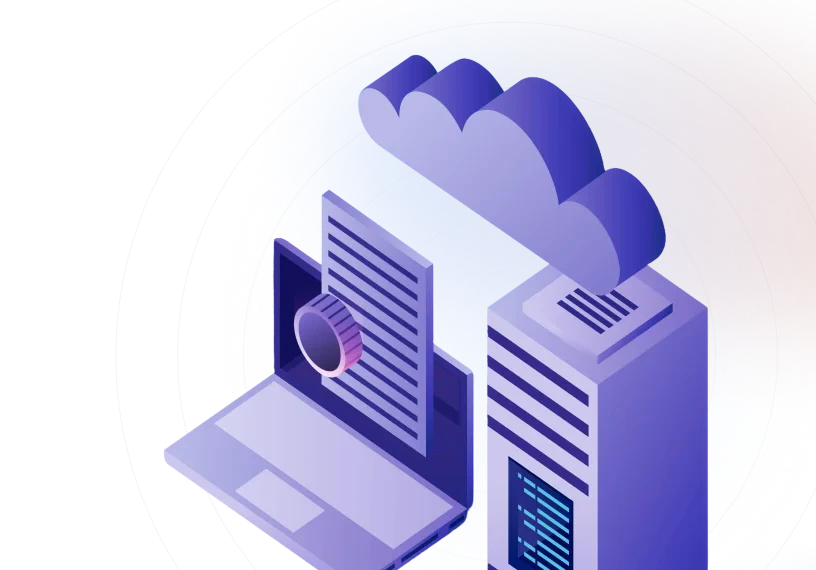What is a Self-Hosted LMS?
A Self-Hosted Learning Management System (LMS) is a software solution installed and managed on an organization’s internal servers or private cloud. Unlike cloud-based LMS platforms, self-hosted LMSs offer complete ownership, allowing businesses to prioritize data control, system flexibility, and compliance with strict regulations.

Industrial Challenges of a Self-Hosted LMS
While self-hosted LMSs offer significant advantages, organizations often face notable challenges:
01
High Initial Investment
Setting up a self-hosted LMS involves considerable upfront costs for hardware, software licenses, and installation. Training IT staff to manage the system adds to the expense.
02
Ongoing Maintenance
Self-hosted systems require dedicated IT teams for troubleshooting, updates, maintenance, and infrastructure upkeep, leading to higher resource allocation.
03
Manual Updates
Regular software updates have to be managed internally, which can sometimes result in delays in getting access to the new features or project enhancements.
04
Accessibility Barriers
Accessing the LMS outside the corporate network can be restrictive unless a secure virtual private network (VPN) or other remote access solutions are implemented.
Key Features of a Self-Hosted LMS in Corporate Training
On-premise hosting
Deploy your LMS on the organization’s servers for complete control over data and infrastructure. This enhances security and compliance with strict regulatory standards, allowing you to customize hosting environments to align with organizational needs.
Platform Customization
Tailor your self-hosted LMS to fit your organization's unique needs. From branding elements like logos and themes to functionality tweaks, enjoy total flexibility in designing a platform that aligns perfectly with your workflows and training goals.
Integration with Local Systems
Seamlessly integrate the LMS with internal systems such as LDAP for streamlined user authentication or Single Sign-On (SSO) for effortless access. Enhance efficiency by aligning training management with your existing IT infrastructure.
Explore advanced administrative controls
Empower administrators with granular control over user permissions, course assignments, and system configurations. Advanced tools make it easy to manage complex hierarchies, departmental roles, and cross-functional access within the LMS.
Content standard support
Ensure your LMS supports industry-standard formats like SCORM, xAPI, and AICC, making it compatible with a variety of eLearning content. This ensures a smooth deployment of courses developed using external tools while maintaining consistency and compatibility.
Handle audit trails and reporting
Keep track of every action within the LMS with comprehensive audit trails. Utilize detailed reporting tools to gain insights into user activity, system changes, and training outcomes. Easily analyze the data and ensure 100% governance.
Benefits Of A Self-Hosted LMS
01
Data Control
Maintain full ownership of the data, ensuring compliance with industry regulations and internal policies. This is critical for managing sensitive information in regulated industries.
02
No Recurring Fees
While the initial costs are high, self-hosted LMSs eliminate recurring subscription fees associated with cloud-based models, offering long-term cost benefits for larger organizations.
03
Server Location
Cloud-based vendors do not host their systems in the same country where they are based. These people benefit from a self-hosted LMS, as it allows them to choose where their server is located worldwide.
04
Enhanced Security
The ability to secure data internally provides a robust safeguard against unauthorized access, especially for organizations handling classified information.
Key Differences Between A
Self-Hosted LMS And A SaaS LMS
Self-Hosted LMS
SaaS LMS
Take full control of your training needs with Calibr LMS.
Customize the platform, manage data securely, and create an engaging learning experience that empowers your team.
The Role of Self-Hosted LMS in Corporate Training
A self-hosted LMS is a strong fit for organizations that require:
01
Complete Data Sovereignty
Critical for industries like finance or healthcare with strict data governance.
02
Customizable Training
For businesses needing unique training workflows or branding.
03
Controlled Environment
Ensuring secure management of proprietary learning content.
FAQ
What is a self-hosted LMS?
A self-hosted LMS is a learning management system that you install and manage on your own servers, rather than relying on a third-party cloud provider. This gives you full control over your data, security, and customization options.
What are the main benefits of using a self-hosted LMS?
Self-hosting offers greater control over data security and privacy. It also allows for extensive customization and flexibility to integrate the LMS with your existing systems, making it ideal for businesses with specific needs or compliance requirements.
How much does a self-hosted LMS cost?
While the LMS software itself may be free (open-source), there are costs for hosting, server maintenance, customization, and technical support. The total cost can vary depending on the size of your organization and the level of customization required.
How secure is a self-hosted LMS?
Security depends on how well the LMS and server are configured. With proper security measures, including encryption, firewalls, and regular updates, a self-hosted LMS can be highly secure. However, the responsibility for security lies with you or your IT team.
What is the difference between a self-hosted LMS and a SaaS LMS?
A self-hosted LMS is managed on your own servers, giving you full control over customization and data security. In contrast, a SaaS (Software as a Service) LMS is hosted on a third-party server, where the provider manages updates and maintenance for you.
Take Control with Calibr's Customizable LMS Platform.
Create your free account now!